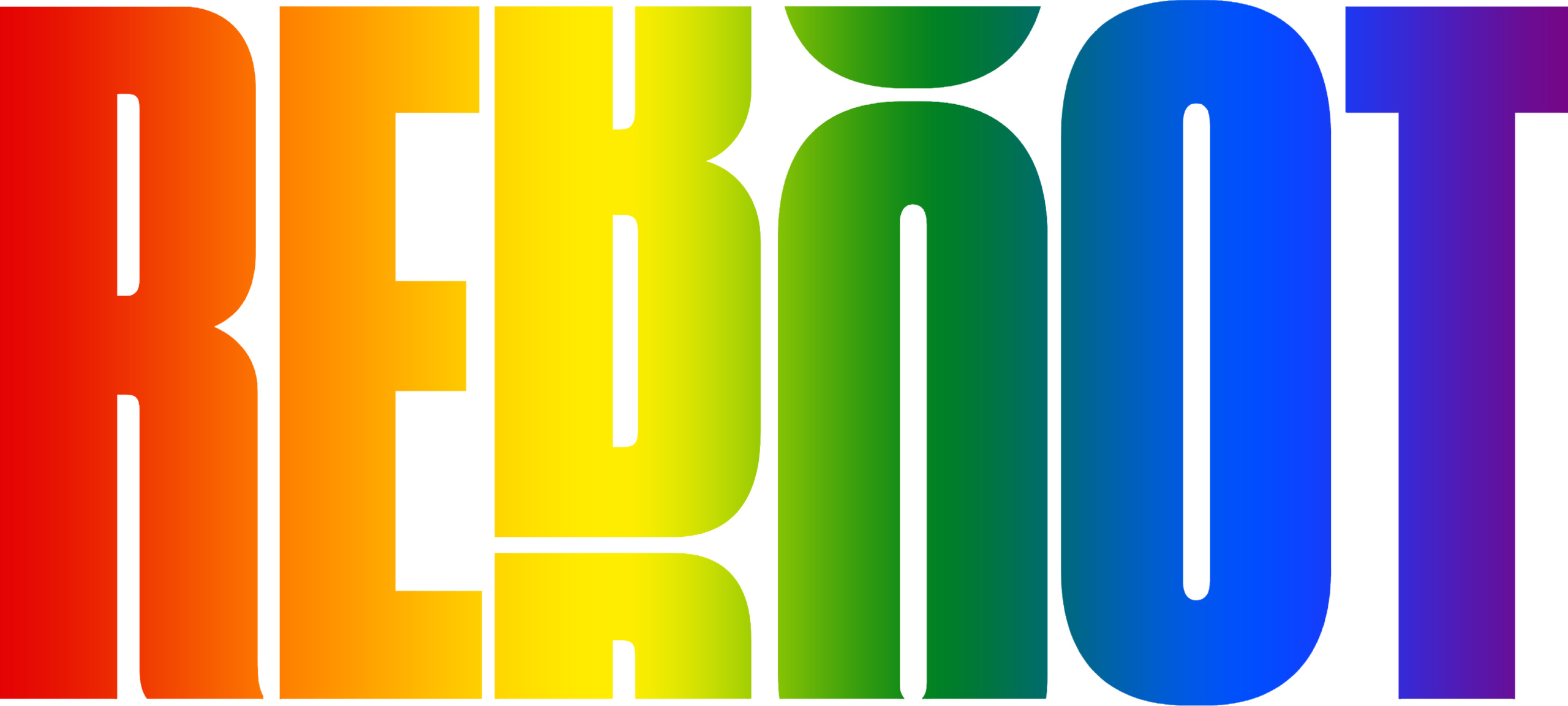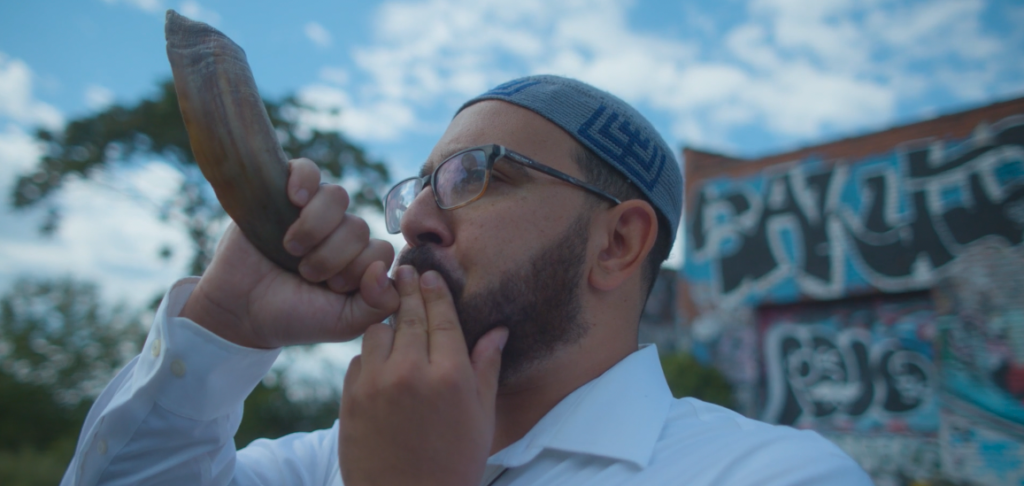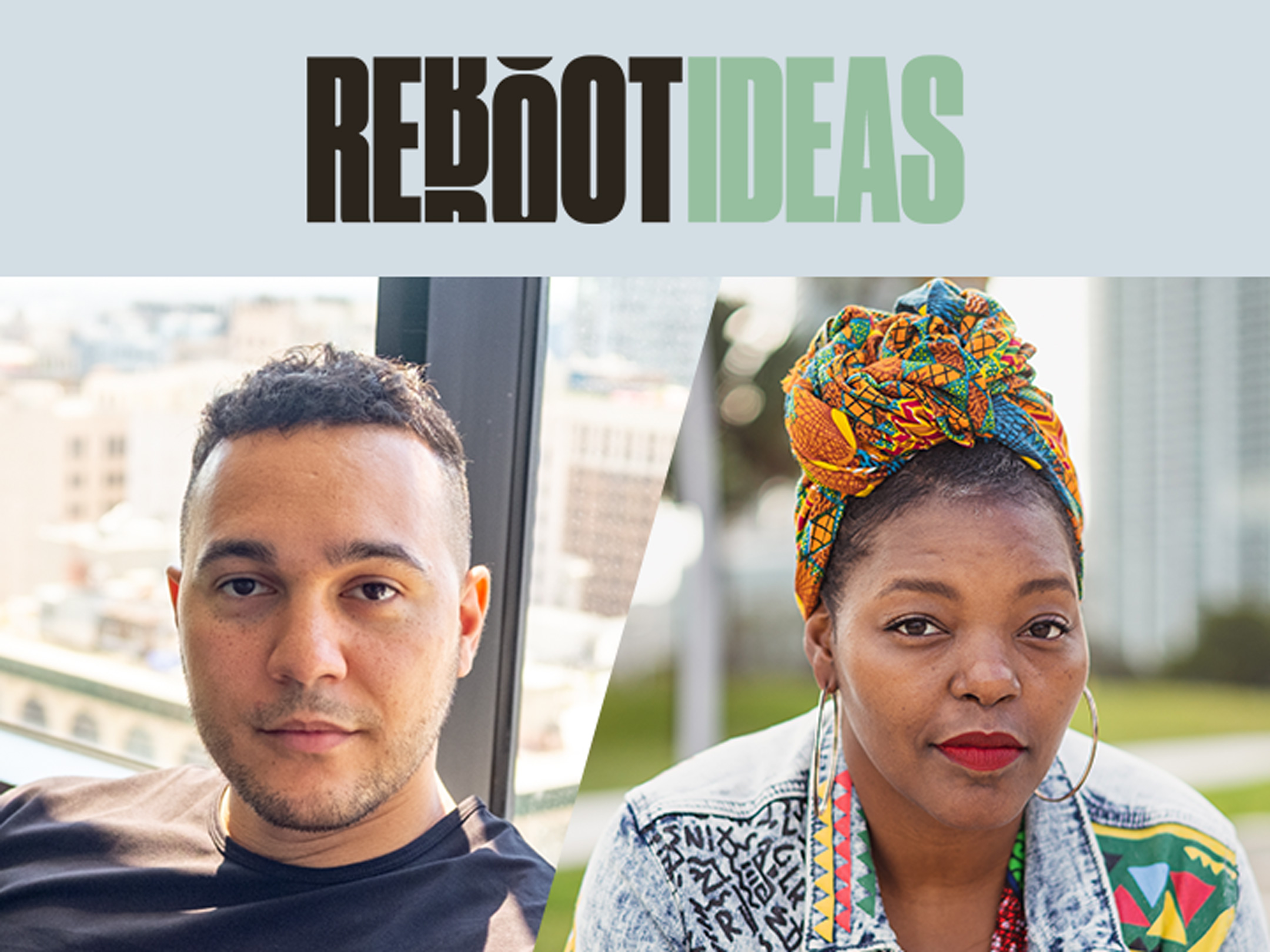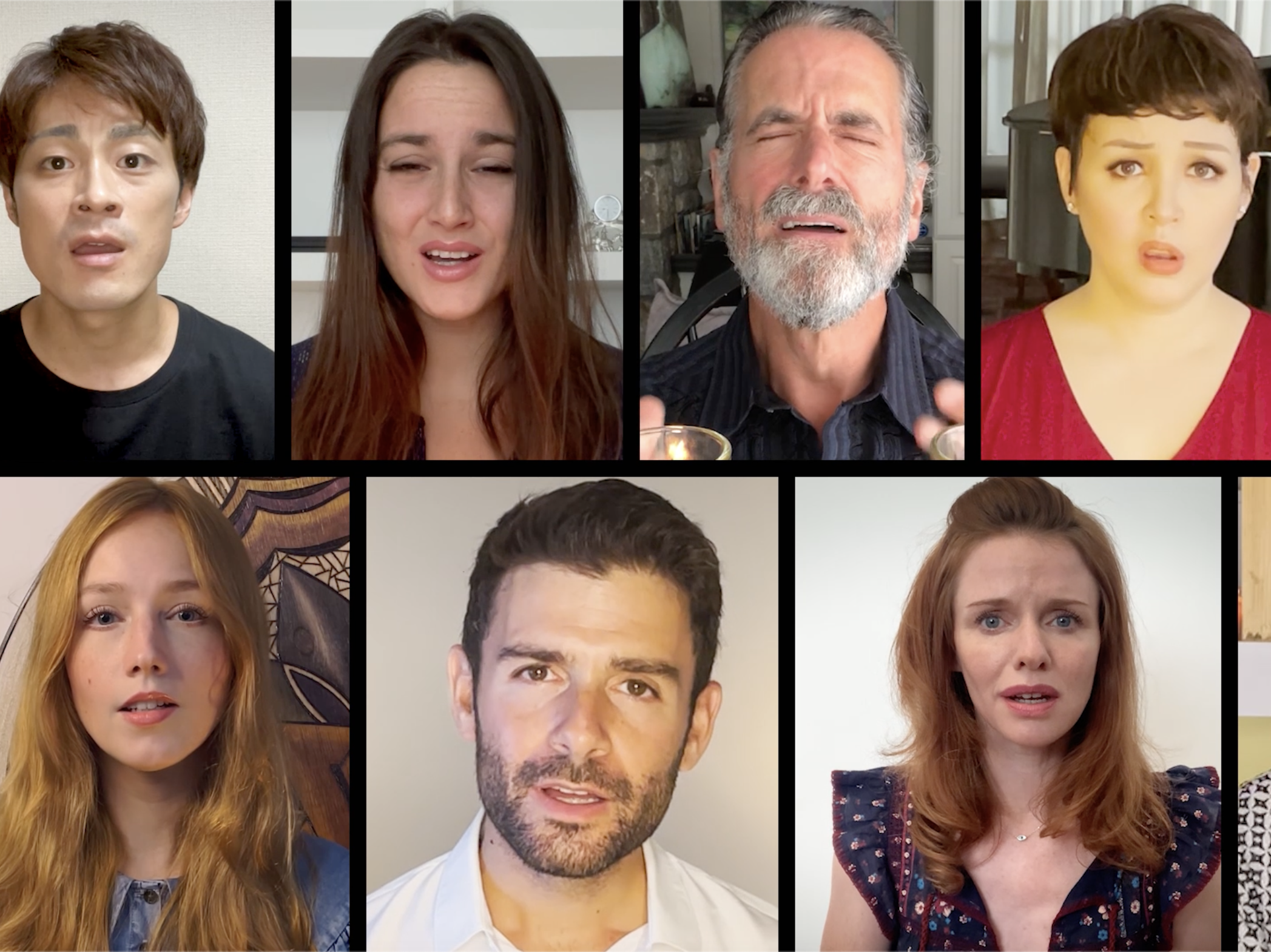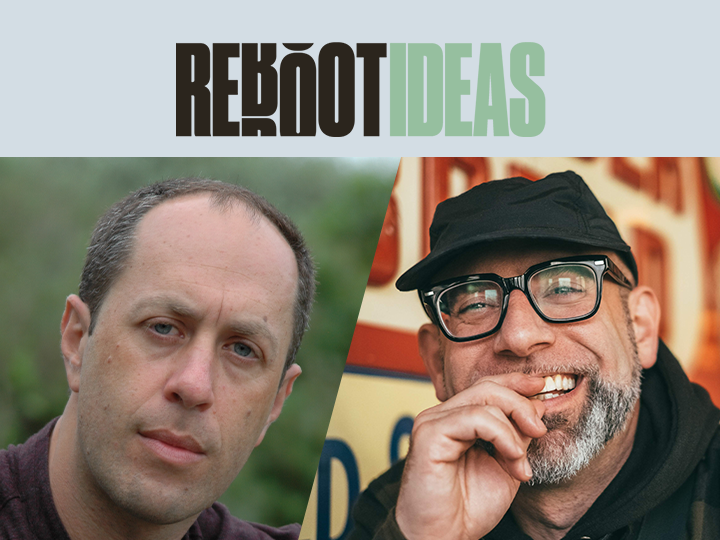Forgiveness: A Visual Poem for a Visceral Time
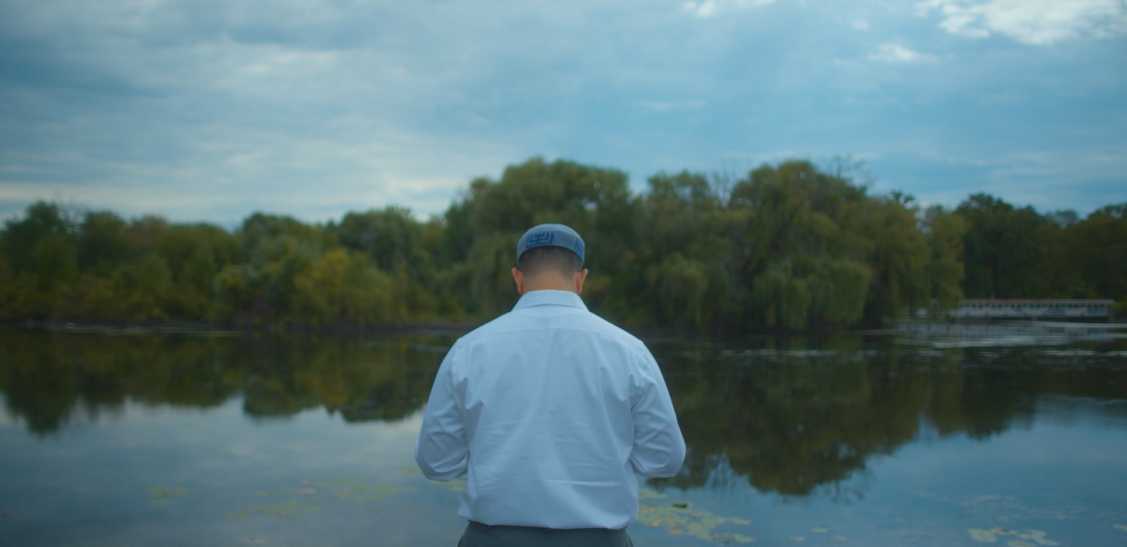
As we ready to seal the gates at the end of the Days of Awe and consider the tradition of asking “Who shall live” and “Who shall die,” we are reflecting on the themes in the Forgiveness visual poem that Reboot released this high holiday with poet and Blavity co-founder Aaron Samuels. With it, we look to the past year to truly process the meaning of the term “forgiveness” in this context and think about how we can grow.
The short film, which can be seen here, is split into three parts. Part One follows the, at times, complicated journey to temple when you are both Black and Jewish, marrying the tallit and the metal detector. Part Two reboots the ancient Midrash Eleh Ezkerah (recounting the execution of 10 martyrs in the time of Hadrian), subbing in the modern day martyrs, victims of the pandemic of violence against blacks over the course of the 20th Century.
Aumad Arbery
Breonna Taylor
George Floyd
Tony McDade
Philando Castile
Sandra Bland
Eric Garner
Michael Brown
Trayvon Martin
Emmett Till
And Part Three brings it all home, seeking to define for Samuels, and for all of us what it means to atone for our sins and what “forgiveness” is. It reminds us once again to consider who might pass on and how, “Who by fire? And Who by Plague?”
Samuels leans into atonement as something far more powerful than an apology. In speaking with Mahogany L. Browne, the executive director of Just Media and the first ever poet-in-residence at the Lincoln Center during a Reboot Ideas conversation about the film and his poem, he arrived at a powerful place. “…What atonement really means in Judaism, it was a step beyond forgiveness, it…shares a lineage with the concept of annulment?…If you’ve fully atoned, it means that you’ve made it as if the thing didn’t happen.”
Now it may not be possible to bring back those who have been killed but is it possible to commit fully to overturning the systemic racism that brought these violent ends into being? Perhaps. This is the ask, “…This poem particularly starts in the Jewish community and asks how can the Jewish community be less racist? The goal is to ask how is a better world possible for all of us and what needs to happen,” Samuels said.
Confronted by the twin pandemics of racism and COVID, Samuels was meticulous in his selection of his cast, as well as his collaborators. Working with his longtime musical composer Carlos, they ensured that pieces of both Calos’s heritage (Mexican, Jewish, Sephardic) were included but also the powerful rhythms of the American Black Experience. Whether that be in Carlos’s own words, “…the intensity of this moment can only really be driven by Argentinian strings or being sure the Black musical tradition with elements of gospel are present…”
Equally so, Aaron and his director of photography, Jeremy, based in Detroit worked to have the video be representative. “It was very important to me that the video of this poem centered on the experiences of Jews of color as they went through their own process of looking for atonement,” Samuels said. “It was important to me that there was a black person that was filming other Black people to do so.”
In the end “Forgiveness” delivers on multiple accounts; from helping to redefine atonement to exploring the twin pandemics of COVID and racism but also an examination of Jewish community.
Samuels speaks to both the Black and Jewish experience and with this visual he addresses the intersectionality therein. For as he notes, “The Jewish community is one of the most diverse communities in history…I think it’s very important that we look at the entire representation and spectrum.”
